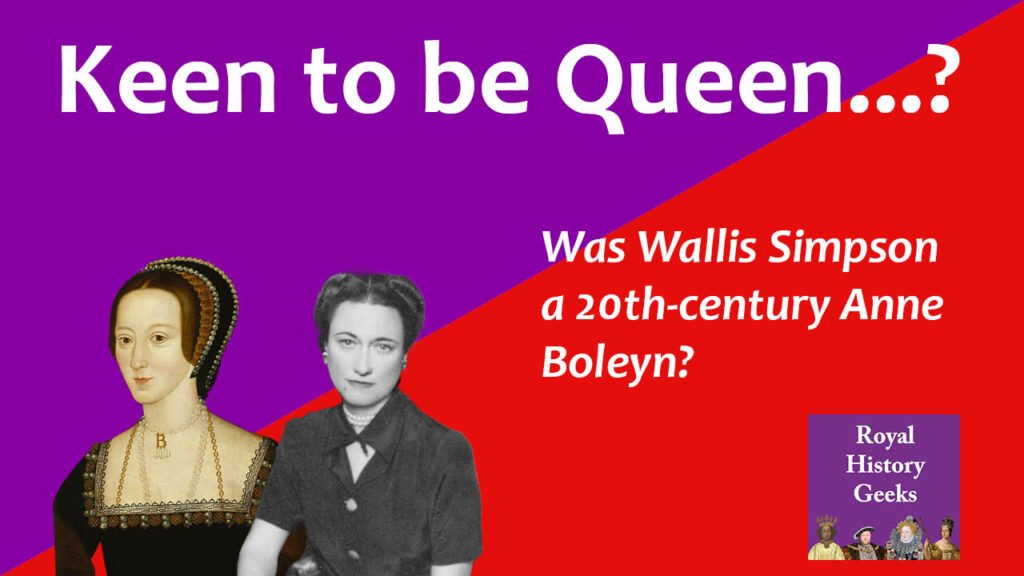By Gareth Streeter

Until recently I’d never given Wallis Simpson any serious thought.
As a Royal history geek from a young age, I encountered her role in the origin story of Elizabeth II, but by the time I was old enough to digest any relevant comment, the “what a wicked woman that stole the King away” narrative had largely dissipated. The 90s, compared to previous decades, was a more sympathetic time.
Subconsciously, I think I had viewed her as a kind of 20th-century Anne Boleyn. She was supposedly not conventionally beautiful so there must have been something captivating about her that could tempt a King away from the lures and responsibility of ruling his empire. I assumed that like Anne, she must have been a sparkling intellect, an unapparelled wit and a woman of fierce ambitions.
Devoted Royal history geeks will know that we are currently in the midst of a podcast series on the Abdication crisis. While studying sources and scholarship, I’ve had big reasons to doubt this take on Wallis. Here are three reasons why:
- Even Anne Boleyn’s fiercest critics would concede that the ill-fated Tudor Queen was a woman of impressive intellect. With Wallis, there is little sign of much intellectual curiosity. She certainly appealed to Edward VIII through her directness and – most importantly – her willingness to put him down. But while Henry VIII was a reasonably clever man that required a very intellectual woman to outsmart him (as both his first two wives seem to have done), getting one over on Edward VIII was a much easier task
- Historians and enthusiasts debate the extent to which Anne Boleyn pursued a political agenda but I would argue she was a driving force behind religious reform. Wallis seems to have no real political or societal agenda. She may have wanted to be Queen when she thought it required little beyond wearing jewellery and entertaining friends at a palace but she seems to have shrunk away from any role in public life. Years after the abdication, when asked about pressing social issues, she talked about the plight of rich widows who now received fewer dinner invitations. A social reformer, she was not
- Anne also understood politics. Yes, she ultimately came undone through a political miscalculation to take on Cromwell. But this was after years of successfully using every tool at her disposal to get what she wanted, even when she had to move heaven and earth to do so. Wallis, as one half of the doomed duo known as “Wallis and Edward”, habitually misread the public mood and made huge political errors. Though I reserve the right to change my mind, I currently view the couple’s Nazi associations as an example of complete naivety, selfishness and foolishness rather than an act of decided political calculation
Do check out the first season of “Royal Revolutions” to join us as we journey through the tumultuous events of 1936…